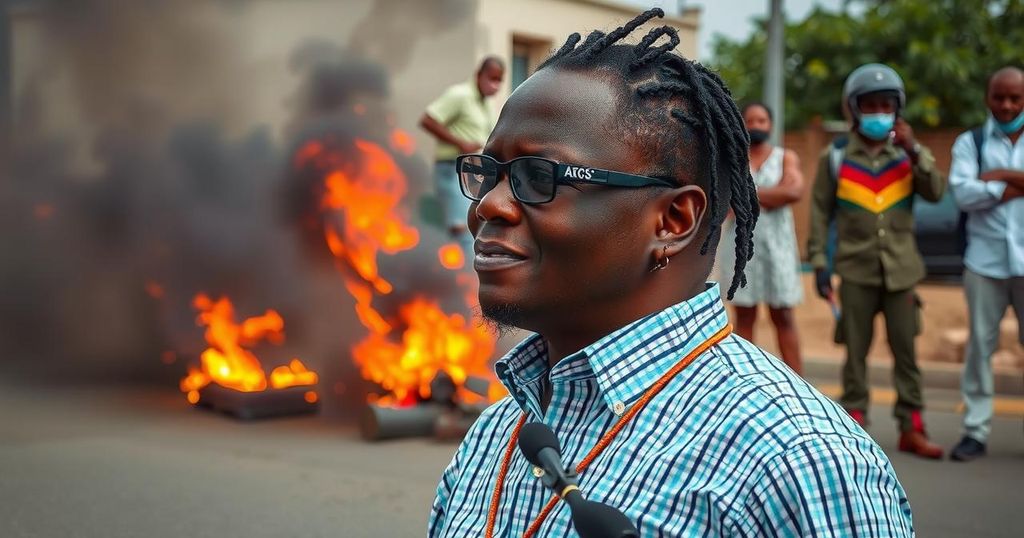World news
AFRICA, AMERICA, CONGRESS, DEMOCRACY, ELECTION, GOVERNMENT, HARRIS, KAMAL, METRO RICHMOND ZOO, MIKE PENCE, MOO DENG, MOSELEY, MOZAMBIQUE, NIPPON STEEL, NORTH AMERICA, OPPOSITION, POLITICS, RICHMOND, SENATE, SOUTH AFRICA, TRUMP, U. S, U. S. STEEL, UNITED STATES, UNITED STEEL, VIRGINIA
Sofia Rodriguez
0 Comments
Mozambique Faces Crisis Amid Post-Election Unrest
Mozambique is experiencing significant unrest following a disputed election outcome, leading to protests and calls for political reform. The protest song “Povo no Poder” has become central to dissent among the youth, who are increasingly challenging the long-standing ruling party. With hundreds reported dead and the opposition leader planning to return, the ongoing crisis highlights the tensions between government authority and public demand for change.
In Mozambique, social unrest has intensified following the government’s announcement of election results that many citizens view as fraudulent. The protest anthem “Povo no Poder,” or “People in Power,” has emerged as a rallying cry for a disillusioned younger generation advocating for significant political change. Demonstrations, fueled by allegations of election rigging, have tragically resulted in numerous fatalities, spotlighting the rising tensions between the government and the opposition. The leader of the opposition plans to return to Mozambique, anticipating that his presence may deter the president-elect’s inauguration amid the escalating crisis.
The current turmoil in Mozambique is rooted in its long-standing political struggles dating back to its independence from Portugal in 1975. The ruling party has faced increasing opposition due to widespread corruption and economic challenges, leading to public discontent, especially among youth who are eager for change. The violence and protests following the disputed election illustrate a critical moment in Mozambique’s history, as citizens push back against years of authoritarian governance amidst claims of fraudulent practices in the electoral process.
Reports indicate that hundreds have lost their lives since the beginning of the unrest, and despite efforts to quash dissent, protests continue across the nation. The situation reflects a significant challenge for both the government and the populace. The upcoming return of the opposition leader signals a determined effort to reclaim democratic values and address the political grievances that have sparked this crisis.
As Mozambique grapples with these significant issues, the outcome of this confrontation between the ruling powers and the citizenry remains uncertain, and it is likely that the prospective actions of both sides will dictate the country’s immediate future.
Mozambique is a southern African nation that has been ruled by the same party since its independence from Portugal in 1975. Widespread allegations of corruption and mismanagement have fostered public discontent, particularly among young citizens who seek political and economic reforms. The current unrest erupted after the ruling party declared victory in a controversial election held in October, leading many to question the legitimacy of the electoral results. As protests continue to grow, the opposition seeks to mobilize support and challenge the government’s authority.
The political landscape in Mozambique remains perilous, with escalating protests indicative of a populace that demands accountability from its leaders. The opposition’s forthcoming actions and the government’s response will be crucial in determining whether peace can be restored or whether the country will descend further into chaos. As the situation develops, the resilience and resolve of the Mozambican people will be tested in their pursuit of political reform.
Original Source: thedispatch.com




Post Comment